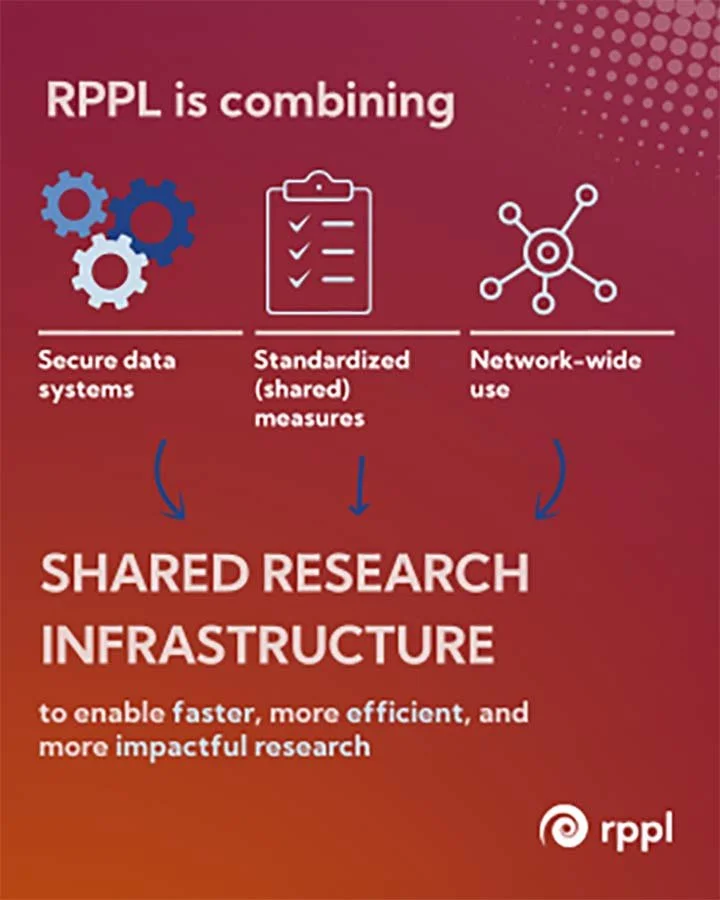RPPL Research Infrastructure for Professional Development
Joined 2022
Partners
RPPL
Annenberg Institute at Brown University
University of Pennsylvania
What are we building?
We are building a shared research infrastructure—combining secure data systems, standardized (shared) measures, and network-wide use—to enable faster, more efficient, and more impactful research. This infrastructure is supporting four interconnected research strands:
Charting the landscape of PL opportunities and actions across districts
Building experimental evidence through A/B testing of PL models
Comparing improvement strategies using shared benchmark measures
Understanding instructional coaching moves through AI-enabled analysis of audio transcripts
What are we learning?
How to improve the conditions for adult learning in ways that:
Increase teacher engagement
Accelerate skill development
Sustain the long-term use of effective instructional practices
We are using these efforts to pursue a deeper learning agenda focused on:
The quality features of professional learning (PL) anchored to high-quality instructional materials (HQIM)
Enactment strategies that support the effective use of math solutions
Practical measures of teacher practice, teacher mindset, student engagement, and student learning
The design features of PL that matter most—particularly personalization, choice/agency, social accountability, and feedback
The systems conditions (e.g., coherence, leadership, infrastructure) that support or constrain the effectiveness of PL, especially in curriculum-based PL (CBPL) models
The role of AI in accelerating research processes and improving PL design and delivery
The national landscape of PL opportunities and the resources shaping access and equity
And we are continuing to learn:
How to align professional learning systems to better support the implementation and sustained use of HQIM
How to foster inclusive, cross-sector collaboration in education research
Products
Stronghold Secure Computing Environment—A privacy-preserving research environment that enables secure data storage and analysis
DTUA Templates—Standardized multiparty data sharing agreement templates to accelerate study setup
Research Study Resources for the RPPL Network—A suite of guidance documents and tools to support study design and implementation
Math Shared Measures Toolkits—Practical, vetted tools for measuring instructional shifts in math-focused professional learning
RPPL Insights—A user-facing data platform for uploading, converting, and benchmarking shared measures data
RPPL Redact—An open-source toolkit that automates transcription, PII redaction, and privacy review
Coaching Moves Framework 2.0—A refined taxonomy of coaching practices based on observational data and PL expertise
Automated Detection of Coaching Moves Tool—An AI-enabled tool that detects and labels coaching practices in transcripts to reduce coding labor and enable scale
Measurement white paper—Developed collaboratively by 10 organizations

